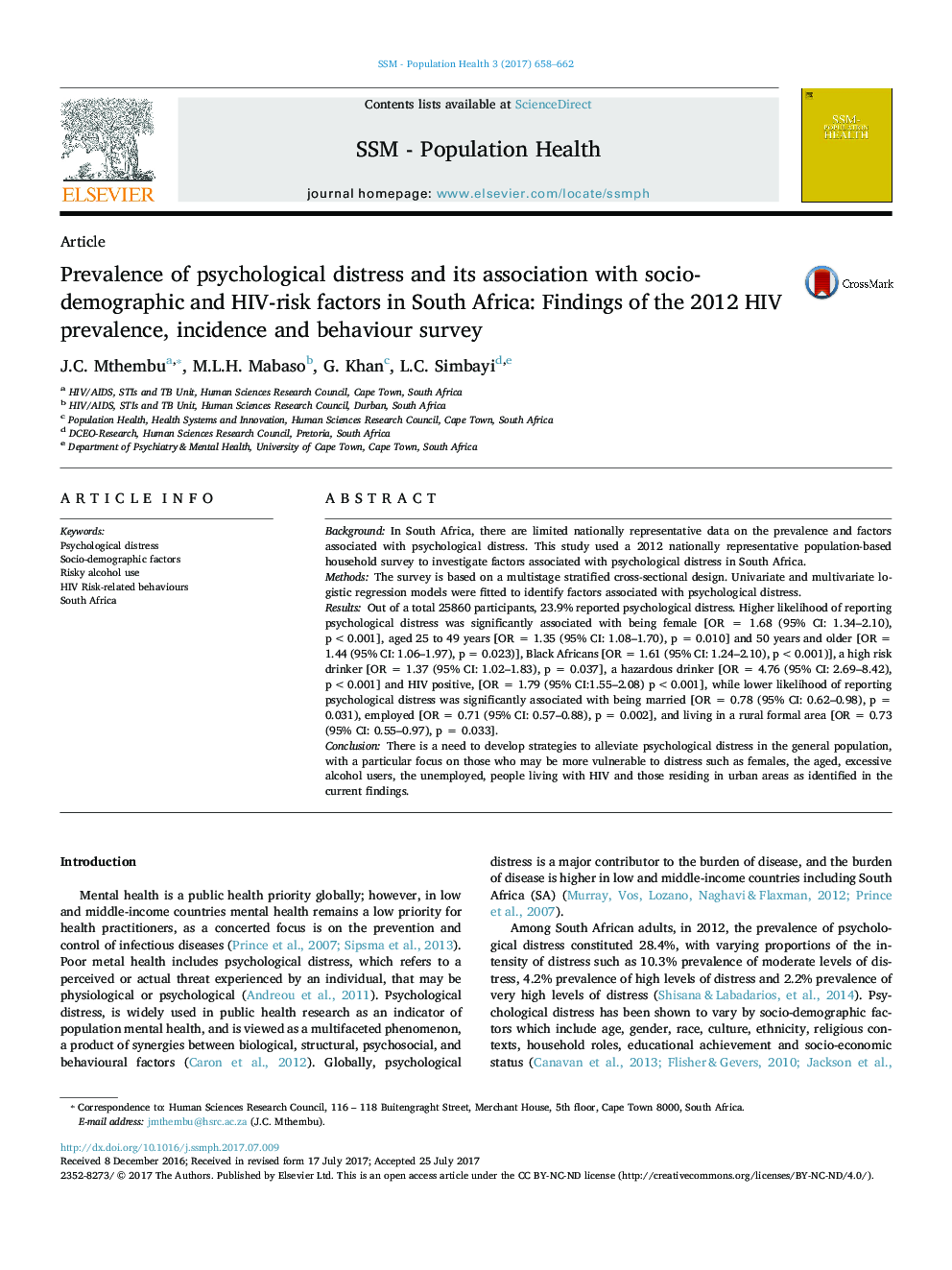| Article ID | Journal | Published Year | Pages | File Type |
|---|---|---|---|---|
| 5123299 | SSM - Population Health | 2017 | 5 Pages |
â¢The study was conducted with a nationally representative sample of South Africans. Given the dearth of nationally representative data pertaining to psychological distress, this paper offers insight into the prevalence of psychological distress and the associated risk factors that are common in this population.â¢The paper describes associations between psychological distress and HIV-risk factors.â¢Findings provide knowledge related to prevalence and risk factors associated with psychological distress.
BackgroundIn South Africa, there are limited nationally representative data on the prevalence and factors associated with psychological distress. This study used a 2012 nationally representative population-based household survey to investigate factors associated with psychological distress in South Africa.MethodsThe survey is based on a multistage stratified cross-sectional design. Univariate and multivariate logistic regression models were fitted to identify factors associated with psychological distress.ResultsOut of a total 25860 participants, 23.9% reported psychological distress. Higher likelihood of reporting psychological distress was significantly associated with being female [OR = 1.68 (95% CI: 1.34-2.10), p < 0.001], aged 25 to 49 years [OR = 1.35 (95% CI: 1.08-1.70), p = 0.010] and 50 years and older [OR = 1.44 (95% CI: 1.06-1.97), p = 0.023)], Black Africans [OR = 1.61 (95% CI: 1.24-2.10), p < 0.001)], a high risk drinker [OR = 1.37 (95% CI: 1.02-1.83), p = 0.037], a hazardous drinker [OR = 4.76 (95% CI: 2.69-8.42), p < 0.001] and HIV positive, [OR = 1.79 (95% CI:1.55-2.08) p < 0.001], while lower likelihood of reporting psychological distress was significantly associated with being married [OR = 0.78 (95% CI: 0.62-0.98), p = 0.031), employed [OR = 0.71 (95% CI: 0.57-0.88), p = 0.002], and living in a rural formal area [OR = 0.73 (95% CI: 0.55-0.97), p = 0.033].ConclusionThere is a need to develop strategies to alleviate psychological distress in the general population, with a particular focus on those who may be more vulnerable to distress such as females, the aged, excessive alcohol users, the unemployed, people living with HIV and those residing in urban areas as identified in the current findings.
